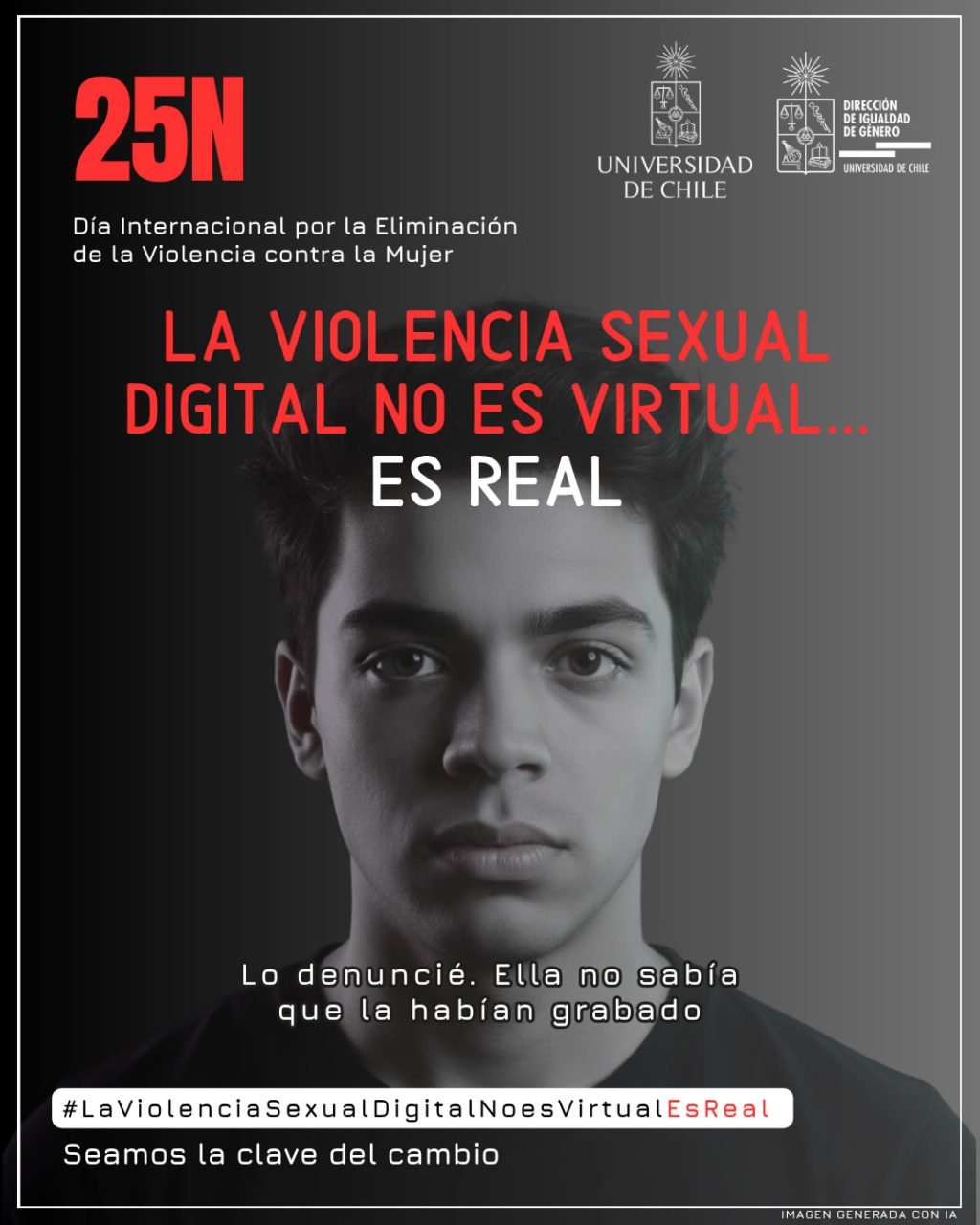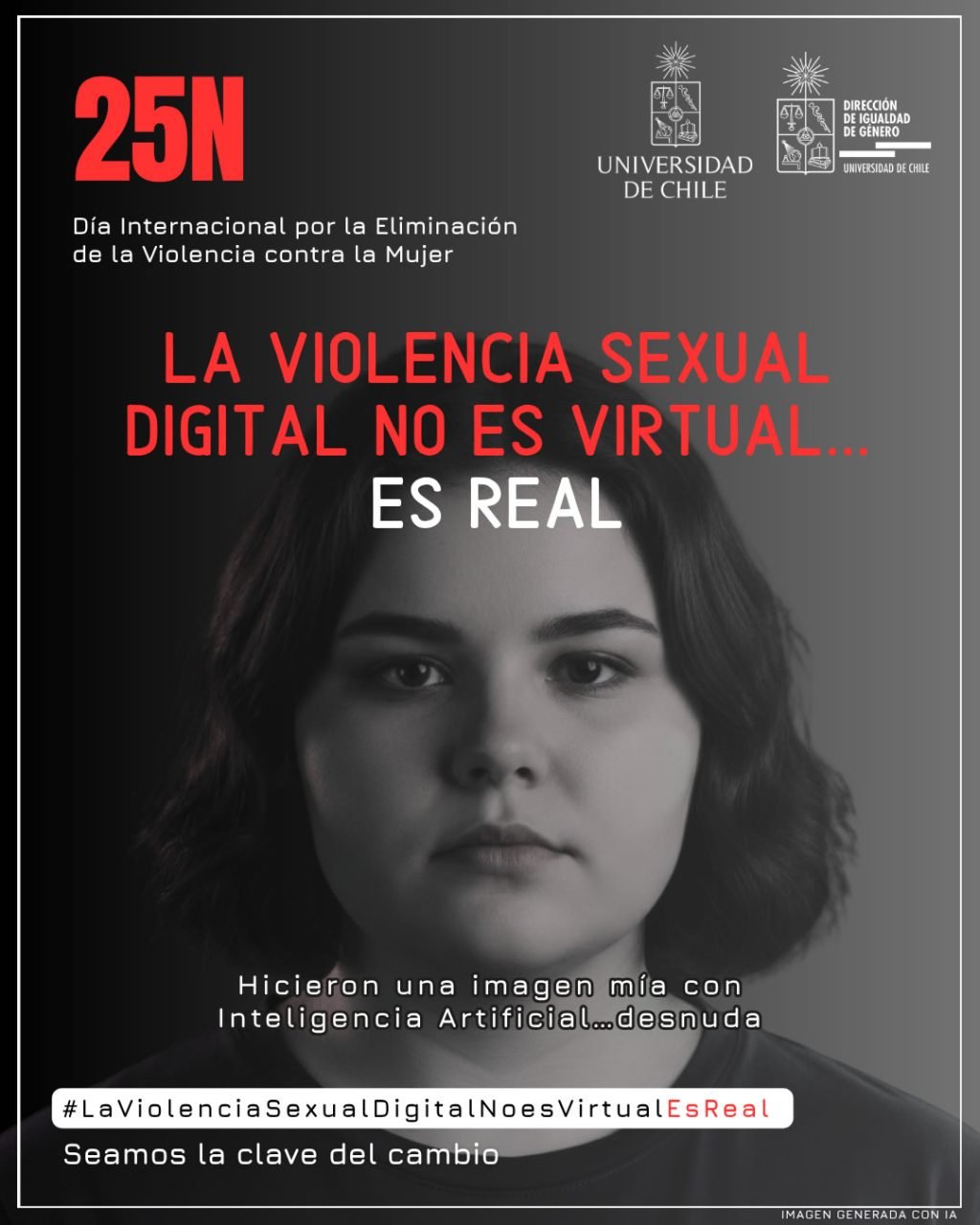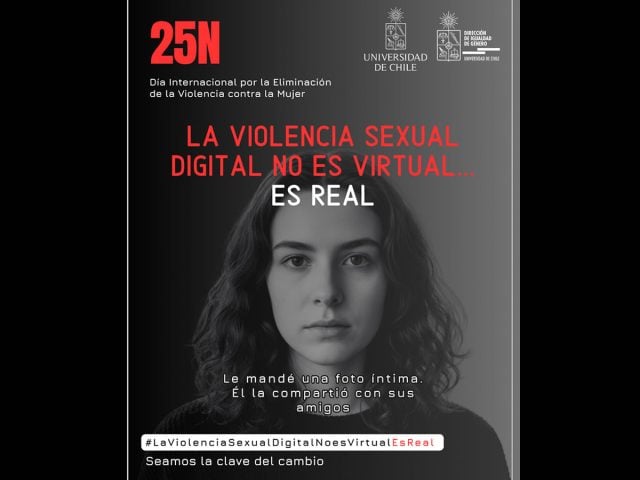Original article: «Lo denuncié, ella no sabía que la habían grabado»: U. de Chile difunde campaña para erradicar violencia sexual digital hacia las mujeres
University of Chile Launches Campaign to Combat Digital Sexual Violence Against Women
Unlike other forms of violence, digital aggression is exacerbated by the anonymity of perpetrators, rapid dissemination of harmful content, and its long-lasting impact, which intensifies the emotional, social, and physical repercussions for victims.
This issue is compounded by legal gaps, lack of regulation by digital platforms, complicated investigative processes, inadequate regulatory frameworks, and unclear reporting channels, all of which contribute to a culture of impunity that discourages individuals from coming forward.
In response, the University of Chile has initiated a campaign that also calls on men to act. Carmen Andrade, the director of Gender Equality at the University, emphasized that «this type of violence manifests in various forms, and despite its virtual nature, the harm it causes is very real.»

Andrade further noted, «One of the most affected groups is young women, as they are the generation most active in the digital world. These individuals are currently in higher education, so we cannot treat this issue as sporadic or harmless. That is why we have launched a campaign that not only highlights this complex problem but invites the university community to participate in eradicating such behaviors.»
Globally, studies show that over 73% of women have experienced some form of online violence. In cases of non-consensual sharing of intimate images, 90% of the victims are women, while men account for approximately 66% of online violence perpetrators («Online Gender-Based Violence Against Women and Girls, Basic Concepts Guide. OAS, CIM, MESECVI, 2023»).
Additionally, 28.5% of women reported experiencing pressure or threats to send sexual content, compared to 18.4% of men (The Sexual Exploitation of Children and Adolescents in Digital Environments; Save the Children, Spain, July 2025).
In Chile, the landscape is similarly concerning: 73.8% of women report having suffered digital violence, according to data from the NGO Amaranta.
Among young women aged 18 to 26, the incidence of online sexual harassment reaches 77.2%. Moreover, there is a significant gap between recognizing cyber sexual harassment and its actual occurrence. In this age group, 52.3% acknowledge having experienced online sexual harassment, but when detailing specific situations, that figure swells to 77.2% («Survey of Sexual Harassment in Chile, created by the Observatory Against Street Harassment (OCAC), 2020»).
The consequences are severe: emotional distress, feelings of insecurity, low self-esteem, and reputational damage, among others.

Limited Information
While data regarding the prevalence of this phenomenon in higher education institutions is limited, the high exposure of one of the most affected age groups—women between 18 and 26—suggests that the magnitude of this issue is likely replicated in universities.
Andrade stresses, «We want this campaign to reach students not only at our university but across all higher education institutions, as well as authorities and organizations.»
Through audiovisual materials, social media content, and educational activities across various faculties, the campaign aims to spark essential and urgent conversations: online, just like offline, women have the right to live free from violence.
Find more information and data HERE (U. de Chile website)
The Citizen










